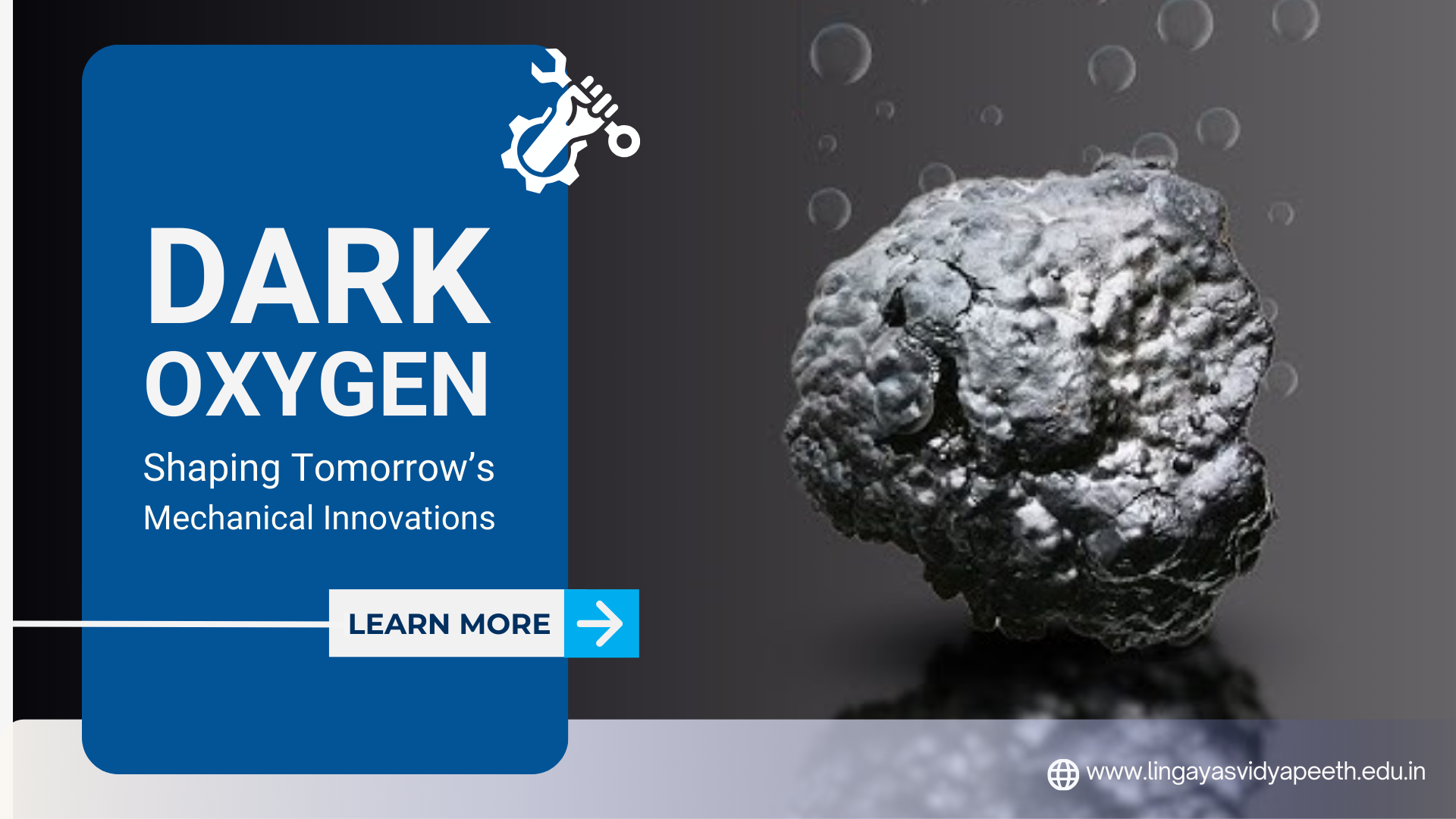Home » Dark Oxygen- A New Frontier for Mechanical Engineering

Scientists have made a revolutionary discovery: “dark oxygen” exists deep beneath the ocean’s surface. This unusual oxygen source, created by minerals rather than photosynthesis, has sparked a surge of excitement and curiosity. But how does this discovery relate to mechanical engineering?
Accessing and analyzing the deep ocean, where “dark oxygen” exists, is no easy task. The enormous pressure, freezing temperatures, and utter darkness provide serious obstacles to human exploration. Here’s where mechanical engineering comes in.
Green Engineering Practices: Sustainable Solutions in Mechanical Engineering
To fully understand the implications of dark oxygen, scientists must perform considerable investigation. Mechanical engineers are critical in creating the tools and infrastructure required for this exploration.
The discovery of dark oxygen creates new opportunities for research and innovation. Mechanical engineers can play an important role in devising technologies to utilize this unique resource.
Air-Powered Vehicles: A New Era in Sustainable Transportation
Conclusion:
The discovery of dark oxygen marks the start of an exciting new chapter in ocean exploration. Mechanical engineers, with their knowledge of design, materials, and systems, will be at the forefront of discovering the mysteries of this perplexing phenomena and capitalizing on its potential advantages.
Are you interested in pursuing a BTech in Mechanical Engineering from one of the leading universities in Delhi NCR? Look no further, Lingaya’s Vidyapeeth is the perfect choice for you. We offer a cutting-edge curriculum, expert faculty, modern facilities and industry collaborations, empowering you to become a future leader in the field of mechanical and automobile engineering.
From
Mr. R K Deb
Assistant Professor
Department of Mechanical Engineering
Lingaya’s Vidyapeeth
Best Mechanical Engineering Colleges in Delhi NCR
RECENT POSTS
CATEGORIES
TAGS
Agriculture Agriculture future AI Architecture artificial intelligence BA English BA Psychology BTech CSE BTech Engineering Business management career Career-Specific Education career guide Career Opportunities career option career scope Civil engineering commerce and management Computer Science Computer science engineering Data science degree education Engineering Engineering students English Literature english program Exam tips Fashion Design Fashion design course Higher Education Journalism journalism and mass communication law Law career Machine Learning MA Psychology Master degree mathematics MBA Mechanical Engineering Pharmacy Psychology Research and Development students
University Address: Nachauli, Jasana Road, Faridabad, Haryana
Toll Free: 1800-120-4613
Mobile : 8447744303 | 8447744304 | 8447744306 | 8447744309
Address: C-72, Second Floor, Shivalik, Near Malviya Nagar,
Above HDFC Bank, New Delhi 110017
Ph.No. - 011-46570515 / 45138169 / 41755703 / +91-7303152412
Jagmani Kutir, Ground Floor, Road No-1, Rajeev Nagar,
Near Darbar Marriage Hall, Patna-800024, Bihar
Contact No: 9818352069/8130120095
Mail: [email protected]
Copyrights © 1998 - 2025 Lingaya's Vidyapeeth (Deemed To Be University). All rights reserved.
It is important to note that the following email IDs and domains are fraudulent and do not belong to our university.
LV only conducts physical/online verification of any document related to examination on the following email id: